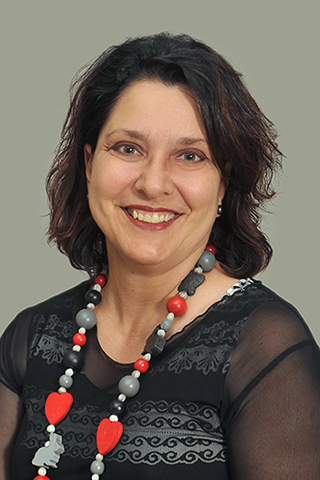It is the diagnosis dreaded by most: cancer. Two professors at the North-West University (NWU) who were both affected in different ways by this life-threatening disease, say the emotional toll it takes can be just as detrimental as the physical havoc it causes. They offer expert advice on how to deal with it when cancer becomes a personal reality.
Prof Welma Lubbe, director of the Quality in Nursing and Midwifery (NuMIQ) research focus area in the Faculty of Health Sciences, says her journey started almost seven years ago when she discovered a lump in her breast.
Tests confirmed she had stage 2 hormone-dependent cancer. What followed was a soul-crushing emotional rollercoaster ride.
“I felt total denial at first followed by numbness and tears. It took four days before the first part of the results confirmed that it was indeed cancer and another four days before further tests determined what type it was and how it should be treated.”
Waiting for the results engulfed her in emotional turmoil and uncertainty. “Anguish takes one to the darkest places where you try to find answers to questions such as ‘will I survive?’ and ‘will my husband manage raising my little children if I die?”
Prof Lubbe has since conquered cancer twice, but how did she cope in those dark days?
Take stock of what is important
“I tried to live as normally as possible. My everyday responsibilities did not vanish when I received the cancer diagnosis. It was this realisation that prompted me to take stock of what is important and what is not.”
Prof Lubbe’s support system ― her family and close friends ― was her saving grace. They supported her emotionally, physically and financially.
“I relied on a small close group to be my buffer and share information on my treatment and well-being with all who wanted to know. This took that tiresome responsibility off my shoulders.”
Her husband made the administrative demands easier. He was her financial support pillar, dealing with the medical aid claims and expenses
A sword hanging over her
Prof Alida Herbst, director of the School of Psychosocial Health, has seen close loved ones being afflicted by cancer. Her mother and grandmother had long hard battles with the disease and survived.
She also assisted many patients after qualifying as a social worker and working as an intern at the surgery clinic of the 1 Military Hospital in Pretoria. It inspired her to become a counsellor, supporter and activist in breast cancer awareness.
“The sword of being at high risk of developing cancer due to our family history is always hanging over me and my relatives, but we support each other and manage it.”
Her advice is to realise that cancer is not a death sentence when it is detected and treated early on. “Both my granny and mother lived healthy lives for more than 25 years after they were first diagnosed.”
Prof Herbst says it is important to:
- Remember that although cancer leaves physical scars and deformation, new medical advances mean that it need not damage a woman’s femininity, identity or spirit.
- Get as much information as possible about the specific breast cancer and its treatment options from trusted sources such as Cansa or your doctor to effectively manage the disease.
- Make a habit of doing monthly self-examinations and going for annual or biannual mammograms.
- Find order, routine and meaning after the chaos.
- Remember you are entitled to your emotions. Be gentle with yourself and seek professional help if your emotions get out of control.
- Hold on to your faith or spirituality; it remains the source of hope.

Prof Welma Lubbe

Prof Alida Herbst
